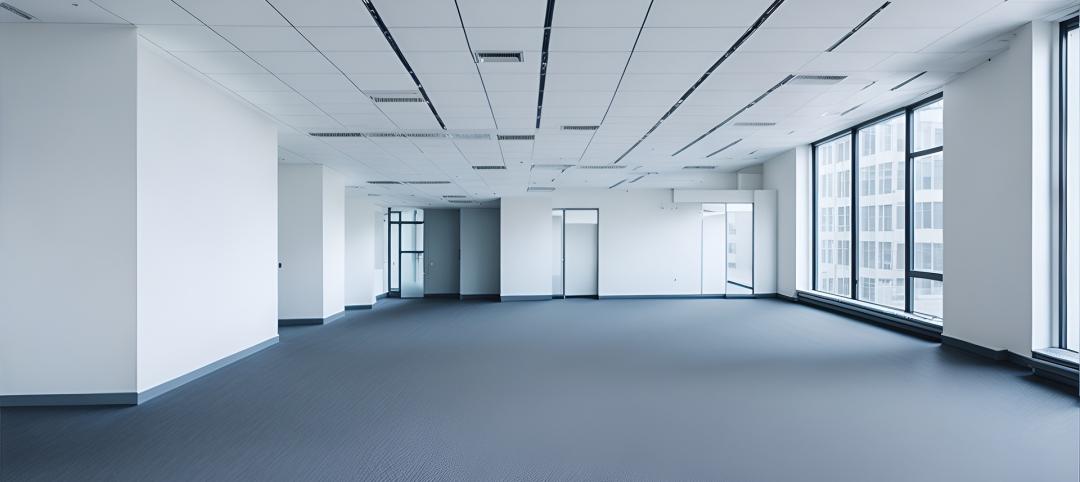HOK has become the latest AEC firm to form a partnership with Delos, the New York-based real estate developer whose International WELL Building Institute’s WELL Building standard establishes performance criteria for occupant health in the built environment.
Within the next 12 months, HOK has committed to put more than 100 of its designers through Delos’s program to become WELL Accredited Professionals (WELL APs).
Bill Hellmuth, AIA, LEED AP, HOK’s chief executive, has joined Delos’ Advisory Board, and will provide strategic counsel on design. HOK will also offer its experts in various practices to provide Delos with research and insight.
Advocates are attempting to promote wellness as the next big thing in nonresidential design and construction, like high performance and sustainability. BD+C’s September issue includes an extensive feature on this movement’s progress. One of the projects cited in that article is a HOK-designed interior renovation of office space in the TD Centre in Toronto to the specifications of the WELL standard for New and Existing Interiors.
“This project for TD is an example of how designers can uses WELL’s performance standards to elevate our ability to create exceptional workplaces,” said Kay Sargent, ASID, IIDA, CID, LEED AP, director of strategic accounts for HOK.
HOK and Delos are now working with Strategic Property Partners, a real estate developer, on the design of multiple buildings within SPP’s mixed-use development on 53 acres in the Channelside district of Tampa, Fla., between Amalie Arena and the central business area.
SPP is a joint venture between Cascade Investments LLC and Jeff Vinik, who owns the Tampa Bay Lightning NHL franchise and has a stake in the Boston Red Sox. This project aspires to be the world’s first WELL-certified city district under the WELL Community standard that is in its early pilot stage.
Components of that standard include enhanced walkability, robust green spaces with low-pollen trees, sound barriers to support acoustic comfort, access to healthy foods, green infrastructure, the daily monitoring and reporting of district air quality, and access to amenities of the urban waterfront.
The redevelopment of Channelside district will include the new 320,000-sf University of South Florida Morsani College of Medicine and Heart Institute, an adjoining 300,000-sf medical office building, and a parking, residential and retail building. It will also feature a 650-room luxury hotel.
SPP intends to begin vertical construction on this project late next year. When all three phases of this district are completed, sometime in the next decade, the redevelopment will have up to 9 million sf of commercial, residential (including 5,000 housing units), educational, entertainment, cultural, and retail space, with total investment exceeding $2 billion.
Related Stories
Adaptive Reuse | Sep 12, 2024
White paper on office-to-residential conversions released by IAPMO
IAPMO has published a new white paper titled “Adaptive Reuse: Converting Offices to Multi-Residential Family,” a comprehensive analysis of addressing housing shortages through the conversion of office spaces into residential units.
Mixed-Use | Sep 10, 2024
Centennial Yards, a $5 billion mixed-use development in downtown Atlanta, tops out its first residential tower
Centennial Yards Company has topped out The Mitchell, the first residential tower of Centennial Yards, a $5 billion mixed-use development in downtown Atlanta. Construction of the apartment building is expected to be complete by the middle of next year, with first move-ins slated for summer 2025.
Healthcare Facilities | Sep 9, 2024
Exploring the cutting edge of neuroscience facility design
BWBR Communications Specialist Amanda Fisher shares the unique considerations and challenges of designing neuroscience facilities.
Office Buildings | Sep 6, 2024
Fact sheet outlines benefits, challenges of thermal energy storage for commercial buildings
A U.S. Dept. of Energy document discusses the benefits and challenges of thermal energy storage for commercial buildings. The document explains how the various types of thermal energy storage technologies work, where their installation is most beneficial, and some practical considerations around installations.
Office Buildings | Sep 5, 2024
Office space downsizing trend appears to be past peak
The office downsizing trend may be past its peak, according to a CBRE survey of 225 companies with offices in the U.S., Canada, and Latin America. Just 37% of companies plan to shrink their office space this year compared to 57% last year, the survey found.
University Buildings | Sep 4, 2024
UC San Diego’s new Multidisciplinary Life Sciences Building will support research and teaching in both health and biological sciences
The University of California San Diego has approved plans for a new Multidisciplinary Life Sciences Building, with construction starting this fall. The 200,000-sf, six-level facility will be the first building on the UC San Diego campus to bridge health science research with biological science research and teaching.
Codes and Standards | Sep 3, 2024
Atlanta aims to crack down on blighted properties with new tax
A new Atlanta law is intended to crack down on absentee landlords including commercial property owners and clean up neglected properties. The “Blight Tax” allows city officials to put levies on blighted property owners up to 25 times higher than current millage rates.
Resiliency | Sep 3, 2024
Phius introduces retrofit standard for more resilient buildings
Phius recently released, REVIVE 2024, a retrofit standard for more resilient buildings. The standard focuses on resilience against grid outages by ensuring structures remain habitable for at least a week during extreme weather events.
Construction Costs | Sep 2, 2024
Construction material decreases level out, but some increases are expected to continue for the balance Q3 2024
The Q3 2024 Quarterly Construction Insights Report from Gordian examines the numerous variables that influence material pricing, including geography, global events and commodity volatility. Gordian and subject matter experts examine fluctuations in costs, their likely causes, and offer predictions about where pricing is likely to go from here. Here is a sampling of the report’s contents.
Adaptive Reuse | Aug 29, 2024
More than 1.2 billion sf of office space have strong potential for residential conversion
More than 1.2 billion sf of U.S. office space—14.8% of the nation’s total—have strong potential for conversion to residential use, according to real estate software and services firm Yardi. Yardi’s new Conversion Feasibility Index scores office buildings on their suitability for multifamily conversion.

















